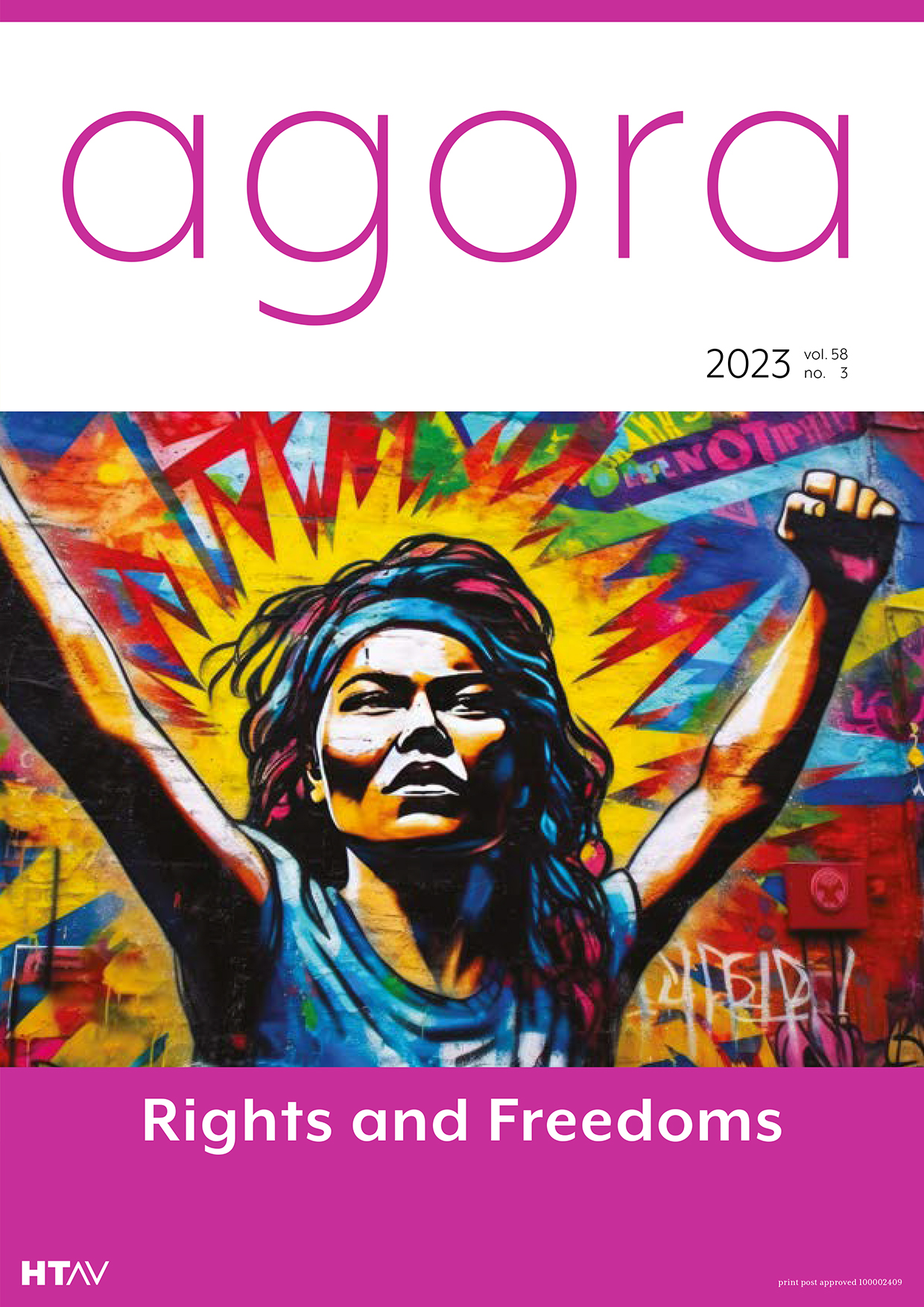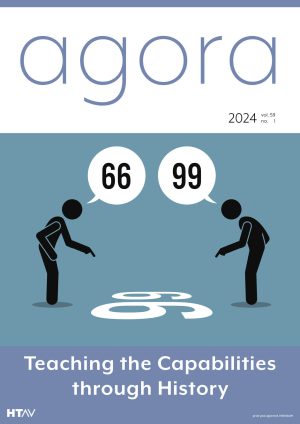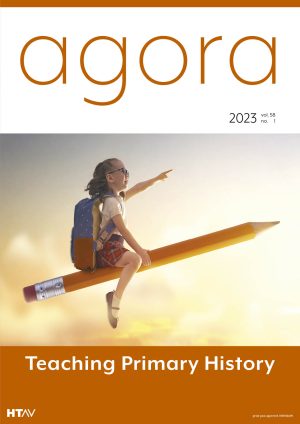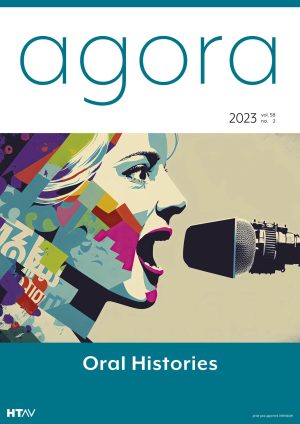Contents
Reflection | Ashley Keith Pratt
Editorial | Guy Nolch
THEMA | Reflections on the theme
From Public Assertions to #Activism: How Protest Has Changed over Time
Jon Piccini, Australian Catholic University
There is continuity and change in the history of protest, from ancient Rome through to modern civil rights movements as recent as Extinction Rebellion.
Australian Jewish Antifascism and Holocaust Memory
Max Kaiser, University of Melbourne
Australian Jewish communities in the 1940s and 1950s sought to achieve Jewish safety from a re-emergence of fascism by finding common ground with movements fighting colonialism and racism in other parts of the world.
The Eight-Hour Movement: A Campaign for the Rights of Labour
Sean Scalmer, University of Melbourne
Mid-nineteenth century workers had basic civil and political rights, but long working hours meant they could not exercise these rights.
Here to Stay! 25 Years after the 1998 Waterfront Dispute
Geraldine Fela, Macquarie University
In 1998 the Coalition government sought to break a powerful union representing Australia’s dock workers. The ramifications have been much wider for Australian workers today.
Is Eureka Really the Birthplace of Australian Democracy?
Andrew Pearce, Sovereign Hill Museums Association
The Eureka rebellion is a pivotal moment in Australian history, but what rights were actually gained in its aftermath?
The Decline of the Governor-General’s Political Powers and Prerogatives
Jack T. Norris, University Melbourne and Janek Drevikovsky, University of Sydney Law School
The decline in the governor-general’s influence since Federation reveals the history of Australia’s disentanglement from Imperial British control.
The Penalty Is Death: Executions in Victoria
Barry Jones, Secretary of the Victorian Anti-Hanging Committee (1962–1975), Member of the Victorian Parliament (1972–1977) and Member of the Commonwealth Parliament (1977–1996)
In 1967, Ronald Ryan was the last person to be executed in Victoria. Before then, who was hanged and who was not depended on the political party in government.
Histories of Abortion, Rights and the Law in the USA and Australia
Prudence Flowers and Catherine Kevin, Flinders University
Rights discourses and their links to ideas of choice and freedom have evolved dramatically in the decades since abortion first became lawful in the United States and Australia.
PRAKTIKOS | Teaching Ideas
A Taste of Rights and Freedoms through a Mock Referendum
Nerissa Marcon, St Helena Secondary College
A mock referendum on an Indigenous Voice to parliament is a contemporary way for students to consider the extent to which the rights of Indigenous Australians have changed since the 1967 referendum.
Civil Rights on Trial in the Classroom
Blair Duncan, Edgars Creek Secondary College
Stan Grant’s farewell address on Q&A is a powerful and contemporary way to prime students for an examination of the American civil rights movement through a mock trial activity.
Enlistment in Victoria during World War II: An Interactive Virtual World
Jo Clyne, International Museum Theatre Alliance (Asia-Pacific)
HTAV has developed a virtual recruitment centre that enables students to meet the types of people who enlisted to serve in World War II and discover the reasons they enlisted.
Dual Coding: A Strategy for Organising Knowledge
Brad Nguyen, Docklands Primary School
Working memory can only process up to four new items of information at a time, but students can retain knowledge more efficiently when it is introduced both verbally and visually.
Writing a History Unit from Scratch
Emma Winton, Nossal High School
Developing a History unit for the first time is a daunting prospect, but there are many resources you can draw on for help—including the wisdom and energy of your students.
SUNGRAPHO | Research and analysis
Historical Empathy, Creativity and the Unessay
Paula Michaels, Claire Dowling, Katherine Robertson and Kelly Lin Huai Wong, Monash University
The unessay offers a mode of assessment that plays to students’ strengths, piques interest and develops a deeper historical understanding that emerges from empathy and creativity.
KRITIKOS | Reviews




